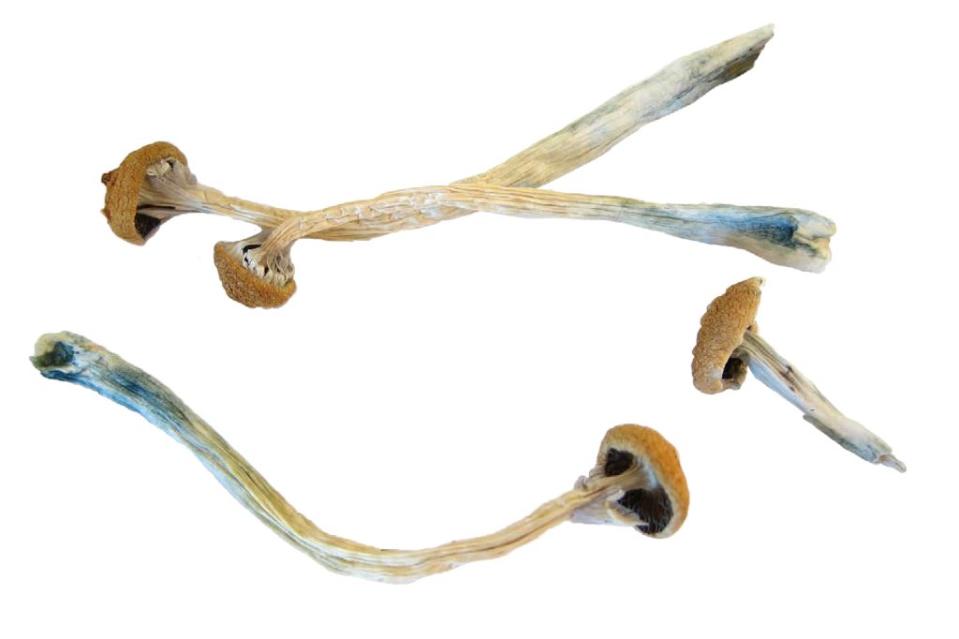The world’s first magic mushroom research center is launching in Jamaica

What exactly makes magic mushrooms psychedelic? How psychedelic are they? Are there any undiscovered psychedelic molecules hidden inside those freaky fungi?
These questions will be the focus of the world’s first research center focused on these psychedelic lifeforms, launching this year in the University of the West Indies in Mona, Jamaica. The research is wholly funded by a Canadian psychedelic company, Field Trip Ventures, which plans to put the findings to profitable use.
The announcement comes just weeks after Johns Hopkins became the largest psychedelic research center in the world. But whereas Johns Hopkins and other US research on psychedelics often focuses on the effects of chemically-produced psilocybin (a synthetic version of the main psychedelic compound in magic mushrooms), the University of West Indies research is dedicated to the fungi themselves.
The research center will study everything from the genetics of magic mushrooms to how best to extract their psychedelic compounds. These goals have both scientific and financial value.
Ronan Levy, co-founder of Field Trip Ventures, has identified two potential business targets: First, the research could establish methods to quantify magic mushrooms’ psychedelic properties, so that people have clearer expectations of their effects. Second, it could identify patentable intellectual property; the company will maintain the rights to all discoveries made at the center. Levy did not respond to questions about how much the company is investing. “There is no specified limit to the amount of funds we will invest in our Jamaican operations provided they continue to generate a positive return on investment,” he said.
The center will employ 10 scientists, with the expectation that more staff will be hired in the coming years. Some scientists are employed by the company, while others are University of the West Indies academics; Field Trip Ventures is paying the university for these academics’ involvement in the research center.
Quantifying the psychedelic impact of varying mushroom species would be valuable in Jamaica, says Levy, where the fungi are legal and freely sold but the industry lacks oversight. Levy says he’s working with the Jamaican government to create a regulated market, where customers would know the strength of what they’re taking. “One of the big challenges with fungi—and you see this with cannabis—is producing consistent product. That variability is quite profound,” says Levy. Understanding the psychedelic impact of each mushroom could also help psychedelic therapists know what they’re giving to a patients.
Kelan Thomas, who researches psychedelic-assisted therapy at the College of Pharmacy at Touro University-California, agrees that this would be of use in psychedelic treatment centers (Thomas has no involvement in Field Trip Ventures or the new research center). Individual researchers have quantified psychoactive molecules in some mushroom species, but there’s more to be done, he says. There are more than 180 types of psychedelic mushrooms, and though the main psychedelic ingredients are psilocybin and baeocystin, Thomas says there’s no definitive analysis of their cellular concentrations.
The center could also yield novel psychedelic molecules. “People know a lot of these other molecules exist in the plants,” says Thomas, “but don’t know what they do on their own.” If the new center stumbles upon new psychedelics, Field Trip Ventures hopes it could capitalize on their therapeutic potential. The company is already building psychedelic clinics across North America—including New York, Los Angeles, and Toronto—with the belief that, while only ketamine is currently legal, other psychedelic drugs will be legalized for therapeutic purposes in the coming years. “It could be that there’s a new novel molecule discovery, figuring out a way to synthesize that and then put it into a more traditional drug development pathway with phase one, phase two, phase three clinical trials,” says Levy.
Levy also expects intellectual property to be valuable in a recreational market, should magic mushrooms be widely decriminalized for general use.
Field Trip Ventures has not identified any new molecules yet, and so research on potential new psychedelic findings is still a long way off. For now, the company is focused on creating the research center, with plans to have construction finished by the end of the year.
Sign up for the Quartz Daily Brief, our free daily newsletter with the world’s most important and interesting news.
More stories from Quartz:
